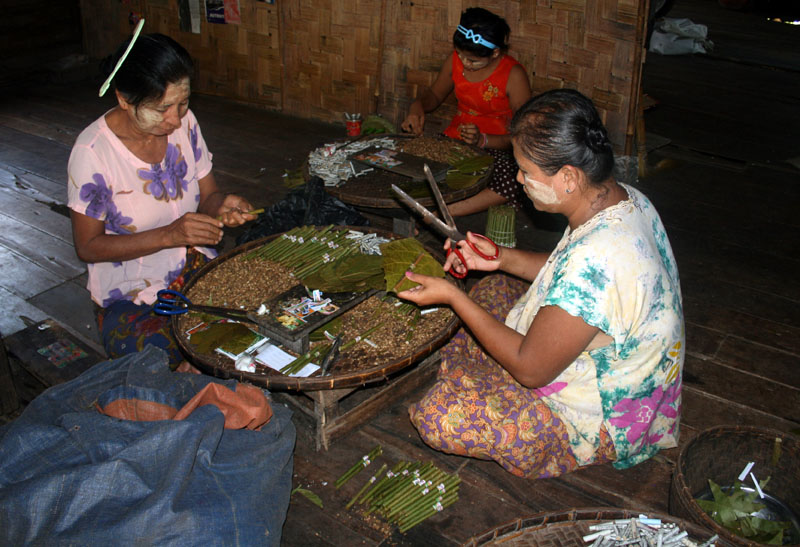Cheroots, previously a staple of Myanmar’s smokers, are close to extinction as manufacturers struggle with high taxes, high production costs and stiff competition from imported and local cigarettes, according to a story by Khin Su Wai for the Myanmar Times.
Nowadays, cheroots were found only in two out of a hundred tea shops in the country, cheroot-manufacturer Ko Hlaing Zayar Oo, Shwe Su, was quoted as saying.
His output during the past three years has dropped to 60 baskets (one basket contains 1300 cheroots) per month from a high of 200 baskets five years ago.
Ko Hlaing Zayar Oo noted also that the price of the basic materials for cheroot production, tobacco stalks and tobacco leaves, had risen respectively from K3,000 per viss (one viss is about 1.6 kg) to K8,000 per viss, and from K2,500 per viss to K3,500 per viss.
He said the piece rates for the women who manually rolled the cheroots had risen to K400 for a hundred cheroots, though it was not stated what those rates were previously. Each of his workers can produce 700-1,000 cheroots per day.
Cheroot production started in Myanmar during the reign of King Shinphyushin, who ruled between 1763 and 1776.
And at their peak, a few decades ago, big cheroot manufacturers could produce up to six million a month, but their production declined by 50 percent last year.
Cheroot manufacturers complained about the several taxes they have to pay: commercial tax, special tax and profit tax.
U Khin Mg Win, who manufactures Kyae Ni cheroots in Oktwin in the Pegu division, said that last year he paid taxes amounting to K30 million and that this year he expected to pay K80 million.
Meanwhile, Daw Khin San Hlaing, secretary for the Myanmar Cheroot Production and Distribution Association, reportedly told The Myanmar Times that the government should help cheroot makers improve leaf production efficiencies and reduce cheroot production costs.
Daw Khin San Hlaing called on the government also to reduce the taxes imposed on cheroots and to help producers explore export markets.











